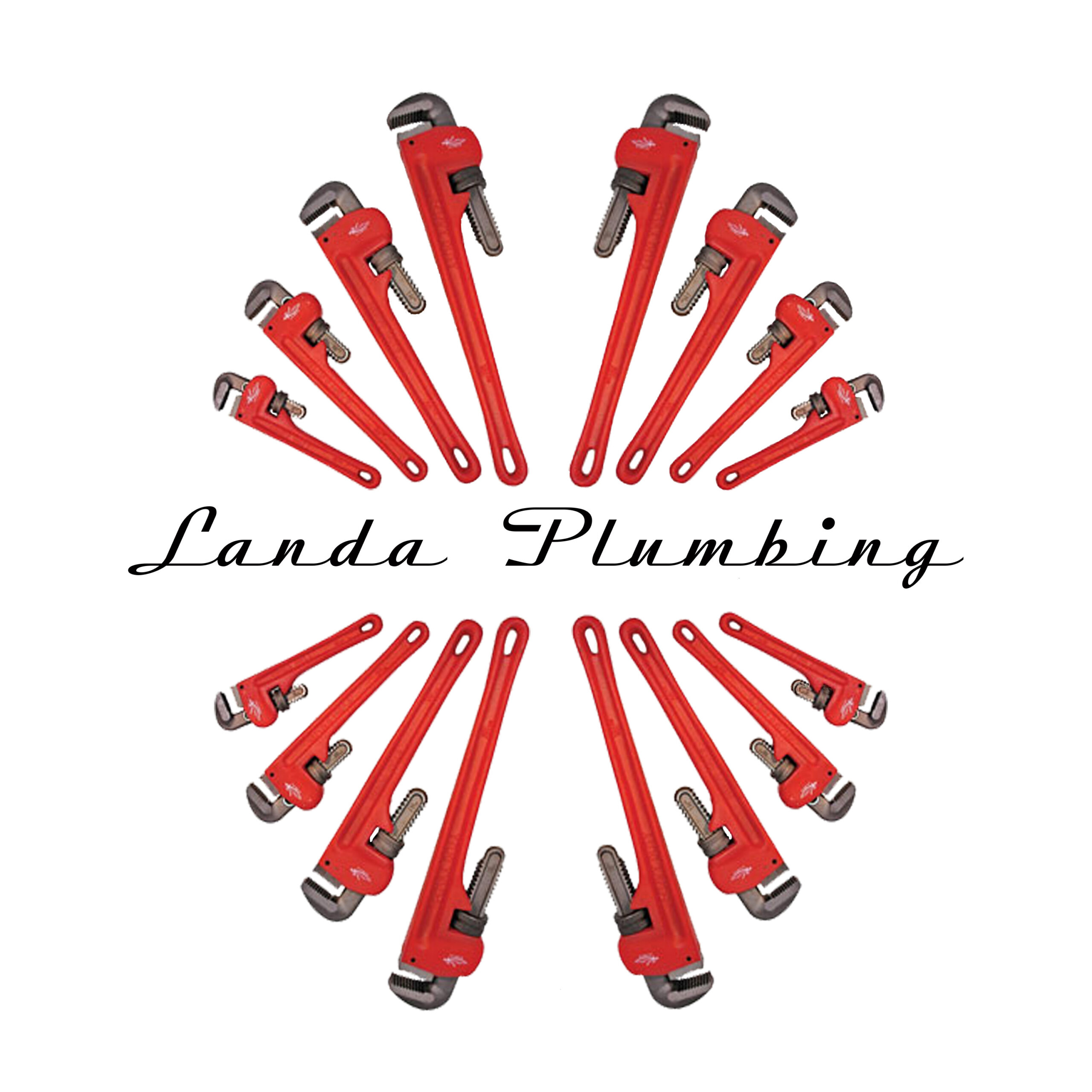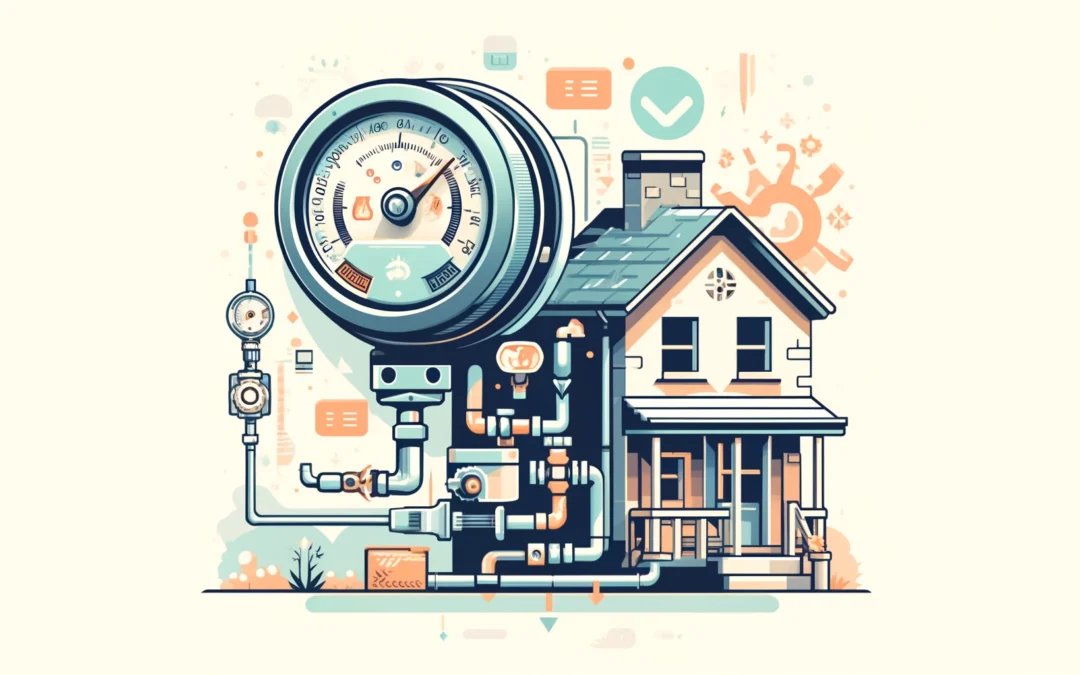EFVs, or Excess Flow Valves, are critical safety devices that automatically shut off the flow of natural gas in the event of a significant leak or break in the service line, preventing dangerous gas buildups that could lead to fires or explosions.
Let’s dive into how EFVs work and why they’re an important safety measure to consider for your home.
HOW DO EFVS WORK?
Excess Flow Valves (EFVs) are safety devices installed at critical points such as the gas meter or on specific appliance piping to protect homes from sudden surges of gas flow or damage to gas lines. They are designed to detect an unusually high gas flow rate, which could indicate a broken pipe or a malfunctioning appliance. When this happens, the EFV springs into action, shutting off the gas supply to your home. This helps to prevent a dangerous gas buildup and the potential for an explosion.
A few things to note in regard to EFV usage and installation are:
- Proper Placement Is Required: As EFVs need to be correctly positioned to function as intended, improper installation can lead to operational issues, such as the instance where a poorly placed EFV at a gas meter prevents a tankless water heater from functioning.
- Consider All Appliances: It’s crucial to account for all gas-using appliances during EFV installation. The specific gas flow requirements and operating patterns of each appliance need to be considered to avoid unintended interruptions in the gas supply.
- Professional Installation Recommended: Due to the complexities of proper placement and the potential consequences of incorrect installation, it is advisable to have EFVs installed by qualified professionals who can assess and accommodate the specific gas flow needs of your home.
By understanding how EFVs work and consulting with a professional about proper placement, you can ensure your home is equipped with this important safety device.
WHY DO GAS HAZARDS HAPPEN?
Natural gas is a convenient and efficient fuel for our homes, but it’s important to remember it’s also flammable and can be dangerous if not handled properly. Several factors can contribute to gas hazards, and understanding these can help you prevent them:
- Leaks: Gas leaks can occur due to worn-out pipes, faulty appliance connections, or even corrosion. Damaged pipes underground are a particular concern as they might go unnoticed for longer.
- Human Error: Accidental damage during renovations or improper appliance use can also lead to gas leaks. Forgetting to turn off a gas burner or knob completely can also allow gas to build up.
- Malfunctioning Appliances: Faulty gas appliances can malfunction and release gas unintentionally. Regular maintenance and replacing outdated appliances can help mitigate this risk.
- Natural Disasters: Earthquakes or other severe weather events can damage gas lines, creating leaks and posing a safety hazard.
THE DANGERS OF GAS HAZARDS
When a gas leak occurs, the two main dangers are:
- Explosion: If a gas leak mixes with air and reaches an ignition source (like a spark or flame), it can cause a violent explosion.
- Carbon Monoxide Poisoning: Incomplete combustion of natural gas produces carbon monoxide (CO), a colorless and odorless gas. CO poisoning can be fatal if not detected in time, causing flu-like symptoms, dizziness, and even death.
PREVENTING GAS HAZARDS
Here are some steps you can take to prevent gas hazards in your home:
- EFV Installation: Consider installing Excess Flow Valves (EFVs) on your gas line. These safety devices automatically shut off the gas supply in case of a sudden surge in flow, helping to prevent explosions.
- Regular Inspections: Have a qualified professional inspect your gas lines and appliances regularly. Most licensed plumbers recommend inspections annually.
- Gas Leak Detection: Install gas leak detectors in your home, particularly near gas appliances and sleeping areas.
- Be Aware of Warning Signs: Learn the signs of a gas leak, such as a rotten egg odor, hissing sounds, or dying houseplants near gas lines.
- Proper Appliance Use: Always follow manufacturer instructions for using gas appliances and turn them off completely when not in use.
- Know What to Do in Case of a Leak: If you suspect a gas leak, evacuate the house immediately, turn off the gas supply at the meter if possible, and call the gas company from a safe location outside.
By understanding the causes of gas hazards and taking preventative measures, you can keep your home safe and ensure you enjoy the benefits of natural gas with peace of mind.
HOW MUCH DO EFVS COST TO INSTALL AND MAINTAIN?
Installing EFVs in your home will of course involve initial expenses, but the enhanced safety benefits they provide are significant. Think of it as an investment in your family’s safety.
INITIAL COSTS
The cost of EFV installation varies based on several factors:
- Number of Valves: More valves may be required depending on the number of gas appliances and the complexity of your home’s gas piping system.
- Installation Location: Costs can differ whether the EFV is installed on the main line entering the home or on lines leading to individual appliances.
- Labor: Rates for professional plumbers vary by region and the specifics of the job, affecting overall installation costs.
On average, homeowners might expect to invest a few hundred dollars per valve. This estimation includes the valve itself and professional installation fees.
MAINTENANCE EXPENSES
While EFVs are designed to be low maintenance, periodic inspections are advisable to ensure they function correctly, especially in homes with high gas usage or older piping. Some manufacturers and safety guidelines recommend that a qualified technician check these valves periodically. The cost of these inspections will depend on local rates and the frequency of checks advised.
By incorporating EFVs, you are not only safeguarding your property against gas-related incidents but also potentially avoiding costly damages from gas leaks, making the initial and maintenance expenses a worthwhile allocation for long-term safety and peace of mind.
SCHEDULE YOUR EFV INSTALLATION TODAY!
Don’t wait for a gas leak to remind you of the importance of home safety. Protect your family and property with Excess Flow Valves (EFVs) professionally installed by the experts at Landa Plumbing. Our skilled technicians are equipped to ensure your EFVs are installed correctly, giving you peace of mind that your home is safeguarded against gas hazards.
Call us today at (925) 529-1045 or browse our website to learn more about how we can help enhance the safety of your home with EFV technology. At Landa Plumbing, we’re committed to delivering dependable protection and quality service you can trust. Schedule your consultation and let us help you make a safer, smarter home a reality.

